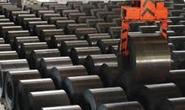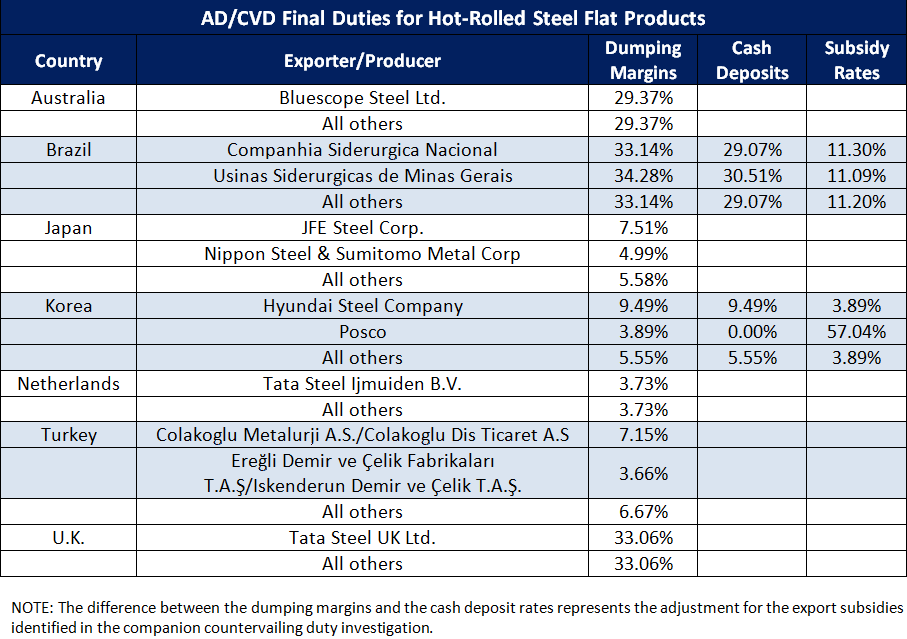Government/Policy

September 13, 2016
ITC Finds Injury in Final Determination on Hot Rolled Coil
Written by Sandy Williams
The U.S. International Trade Commission announced its AD/CVD determinations on Monday in the investigation of imports of hot-rolled steel flat products from Australia, Brazil, Japan, Korea, the Netherlands, Turkey, and the U.K.
A final determination of injury was found by the ITC in the antidumping investigation of imports from Australia, Brazil, Japan, Korea, the Netherlands, Turkey, and the United Kingdom. Antidumping duty orders will be issued on imports from these countries.
In the CVD investigation concerning subsidization, the ITC voted in the affirmative on imports from Brazil and Korea and found that the imports subsidization from Turkey was negligible. Countervailing duties will be issued on imports from Brazil and Korea but not Turkey.
In addition, no critical circumstances were found in regards to imports of the hot-rolled flat steel from Brazil and Japan so duties will not be retroactive to Commerce’s affirmative preliminary determinations.
The AD/CVD duties will be applied as follows:








